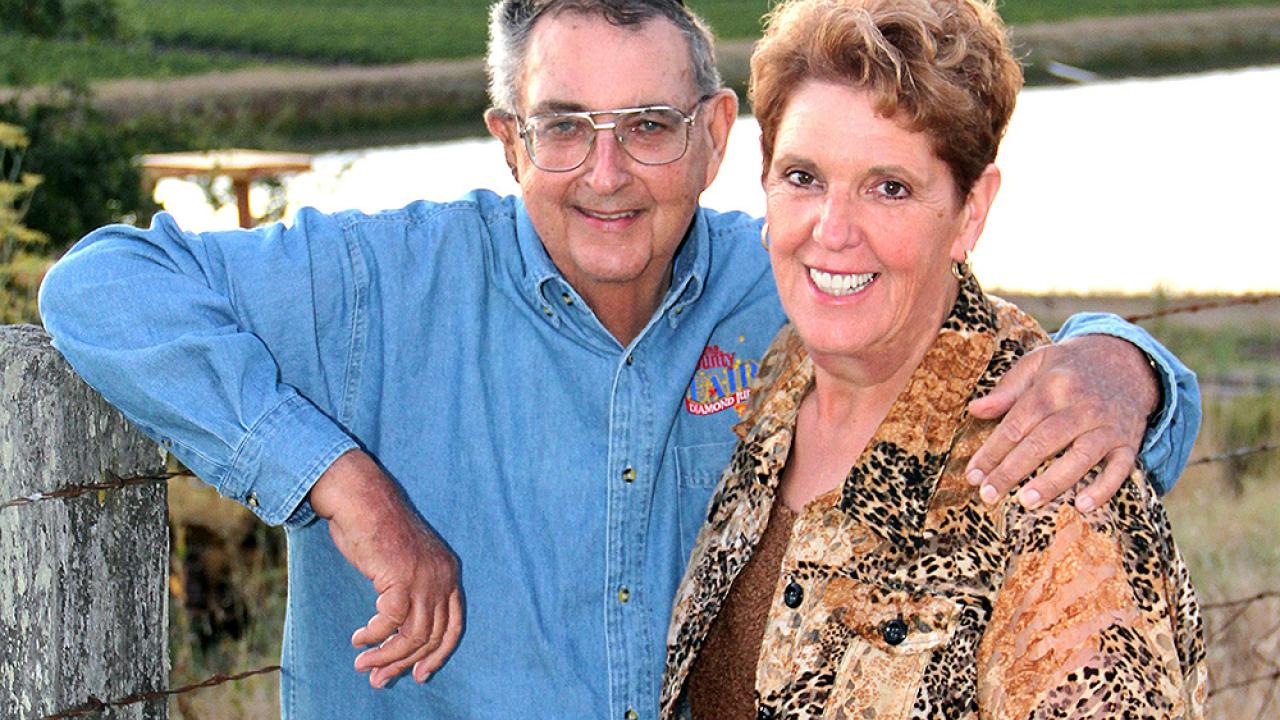
Uncorking A Tradition
Rich Kunde changed the way wine is made and sold in the U.S.
As a UC Davis student, Rich Kunde ('64, fermentation science; M.S., '66, horticulture) learned about French appellations, geographical names that are used to identify and market wine. The idea stuck with Kunde, who grew up tending vineyards on the family's Sonoma County ranch. In fact, it helped him land a job as a field representative with the California North Coast Grape Growers.
"I got in front of the board and asked them, 'Where is the North Coast?'" he recalled. "They told me 'Napa, Sonoma, and Mendocino counties, of course.' I said, 'But you can buy wine labeled North Coast that's made from Thompson Seedless grapes from Bakersfield. I think you need to protect your appellation, North Coast, and actually define it by law.'"
Kunde got the job and also worked with industry leaders to pursue his idea. "I wanted to create appellations for America, but I didn't want to call them appellations," Kunde said.
He proposed calling them American Viticultural Areas (AVA) to avoid confusion. He contacted the then-named Bureau of Alcohol, Tobacco, and Firearms. "I explained how AVAs would give consumers a guarantee that the wine actually came from that area," he said. "I also requested that varietal wines be increased from 50 percent to 75 percent of the named variety."
Kunde prevailed. Today California has dozens of AVAs, such as Napa Valley, Santa Lucia Highlands, and Sonoma Coast. The AVAs add value to the wine industry, and the higher varietal content helps the regions distinguish themselves from one another.
At UC Davis, Kunde also learned how to run a greenhouse, knowledge that served him well when he began to manage Sonoma Grapevines in 1976. Kunde started advertising, attending trade shows, and building a network of growers. He built up the struggling business, and then bought it in 1982. Within 10 years, Sonoma Grapevines became the largest grapevine nursery in the country with 800 employees and 600 acres in Sonoma and Fresno counties.
The nursery also sold flowers, and that's how Kunde met Saralee McClelland, a dedicated advocate for Sonoma County agriculture who managed the local harvest fair. She needed flowers to decorate the exhibit hall. After Kunde arrived with a load of marigolds, they shared views on flower arranging. He was smitten. They married in 1980.
She left the fairgrounds to manage the Kundes' growing vineyards. They grew 84 varieties on 500 acres, selling their grapes to 63 wineries. But the workload took a toll, so they sold the nursery in 2000 and scaled back on vineyard acreage.
The Kundes have been extraordinarily generous with their success. They raised millions of dollars for agricultural causes and created scholarships for youth involved in agriculture and the food industry. At UC Davis they established the Richard and Saralee Kunde Scholarship for viticulture and enology students. Plans are in the works to establish an endowed faculty position in the Department of Viticulture and Enology.
Sadly, Saralee passed away in January 2014. Kunde is raising funds to build her dream — a $1.9 million pavilion at the Sonoma County Fairgrounds that will be the showcase for agricultural education.
"She did so many things for young people," Kunde said. "They thank me so much for Saralee."
Their shared legacy lives on at UC Davis and beyond in the lives they have touched.
Help Support the College of Agricultural and Environmental Sciences Annual Fund
- Related content
- Outlook Magazine Articles